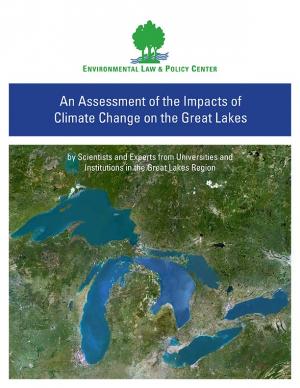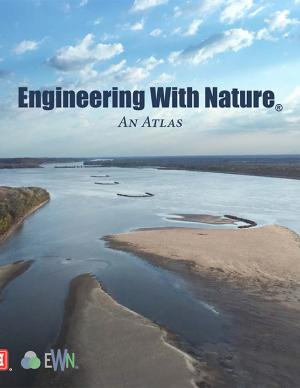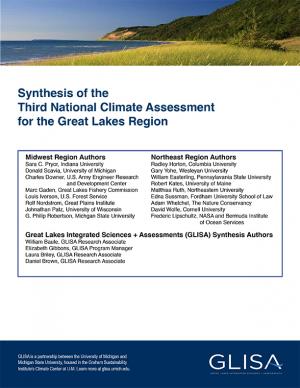Access a range of climate-related reports issued by government agencies and scientific organizations. Browse the reports listed below, or filter by scope, content, or focus in the boxes above. To expand your results, click the Clear Filters link.
Climate change is causing significant and far-reaching impacts on the Great Lakes and the Great Lakes region. This report, from 18 leading scientists and experts from Midwest and Canadian universities and research institutions, draws on the array of existing research to assess how the shifting global climate impacts the unique Great Lakes region.
The EWN Atlas is a collection of 56 projects illustrating a diverse portfolio of contexts, motivations, and successful outcomes, presented and considered from an Engineering With Nature® perspective to reveal the usefulness of nature-based approaches and the range of benefits that can be achieved. Engineering With Nature is an initiative of the U.S. Army Corps of Engineers enabling more sustainable delivery of economic, social, and environmental benefits associated with water resources infrastructure. EWN intentionally aligns natural and engineering processes to efficiently and sustainably deliver economic, environmental, and social benefits through collaborative processes.
Intense rainstorms, floods, and heat waves will become more common in the Great Lakes region due to climate change in the coming decades. While ice-cover declines will lengthen the commercial navigation season on the lakes, warmer lake temperatures will increase risks from invasive species, and could threaten water quality. Material in this report is largely a synthesis of the information contained in the National Climate Assessment’s chapters on the Midwest (Chapter 18) and Northeast (Chapter 16). Donald Scavia, GLISA's co-director, was one of the convening authors of the NCA's Midwest regional chapter; GLISA also served as a hub for the compilation of technical inputs for the Midwest chapter.
This report, the first of its kind for the City of Grand Rapids, outlines the condition of the city's climate resiliency and offers recommendations for how it can both impact and adapt to climate change. The report's goal is to both spur a larger community conversation around processes that will enable Grand Rapids to become a more climate-resilient city and to spur many specific short- and near-term projects, policies, programs, and plans to mitigate the effects of climate change. The report documents projected local climate changes, their potential negative impact to low-income families, and outlines small near-term solutions that the city can make to curb or adapt to climate change. Recommendations include investing in green space and improving the city's tree canopy, improving the city's energy autonomy, and implementing green street infrastructure materials and maintenance techniques.
The City of Marquette is the largest city in Michigan's Upper Peninsula and one of the most economically diverse in the state. The city is especially vulnerable to environmental, economic, and social impacts of climate change, largely because it borders Lake Superior. A team of Michigan State University Extension specialists and educators received funding from the Great Lakes Integrated Sciences and Assessments Center (GLISA) to collaborate with GLISA researchers, relevant decision makers, and stakeholders in Marquette to increase community resilience through incorporating climate variability and change adaption strategies into local land use master plans and policies. Key stakeholders in the agriculture, forestry, natural resources, health, planning, and tourism fields participated in the development of climate change concerns and strategies. Overwhelmingly, residents and local leaders wanted to protect the natural environment that makes Marquette such a desirable place to live. This report details the process and results of this community-driven process, and also contains specific, detailed GIS maps of the region that reflect the climate vulnerabilities and concerns of the residents and leaders in the Marquette region.
NOTE: This report inspired the creation of another report: "Climate and Health Adaptation Planning Guide for Michigan Communities"








